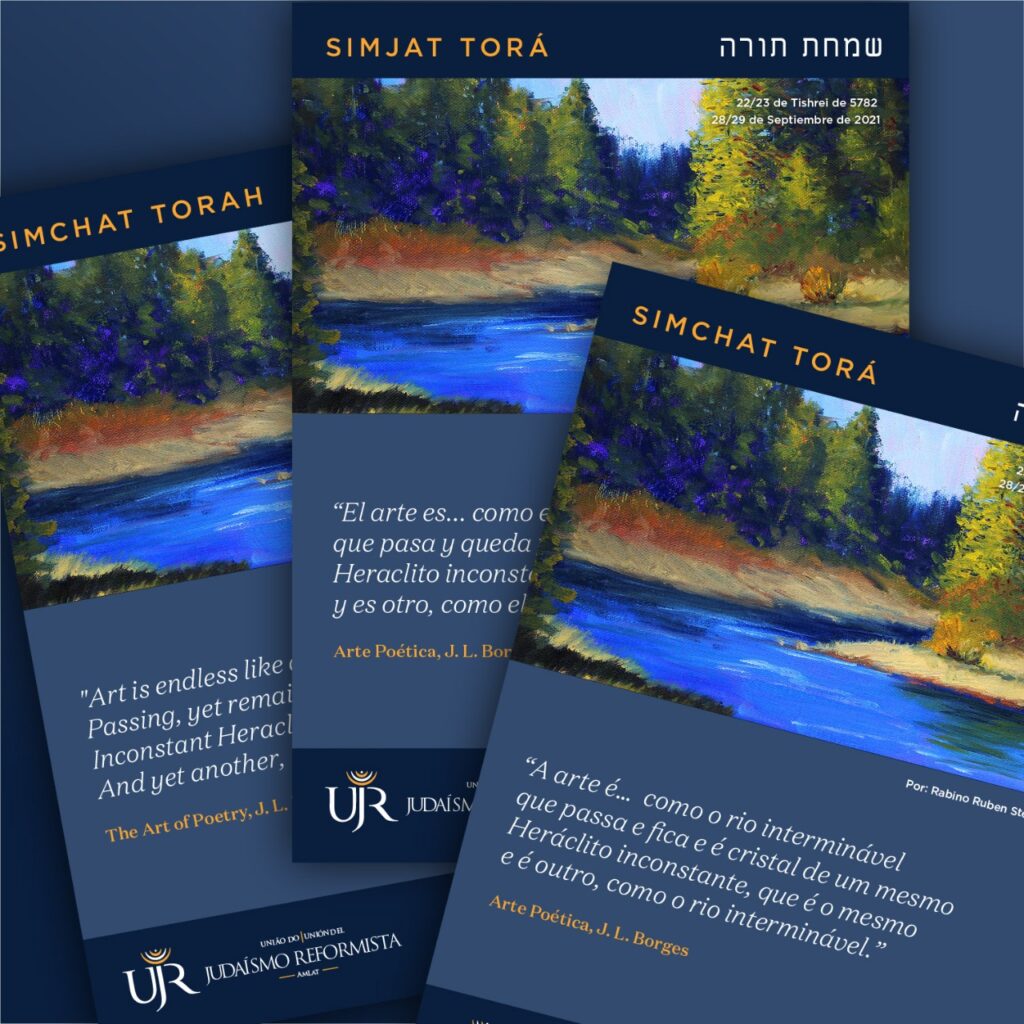“Art is endless… like a river flowing
Passing, yet remaining, a mirror to the same
Inconstant Heraclitus, who is the same
And yet another, like the river flowing.”
The Art of Poetry, J. L. Borges
Simchat Torah is the date that celebrates the ending of the annual Torah reading cycle, and its immediate restart. It’s the festival of certain repetition. Perhaps it’s even the festival of routine.
Because the everyday also deserves to be celebrated and sanctified. Nothing easier than celebrating the special and feeling special facing the special. The challenge lies in feeling special when facing the ordinary. Judaism does this through daily blessings on water, on looking and seeing, and on the ability of doing one’s basic physiological needs.
We all feel special when we get a new job, when we meet new people or when we meet friends we haven’t seen in a while. Nevertheless, life is made mostly of countless ordinary moments, in the same places and with the same people, and it is there, in those circumstances, that we have the true opportunity to deepen ourselves and our relationship ways. For it’s in the everyday that our true identity may show, with no masks, no production, no special adornments. Simchat Torah, as Sukkot preceding it, celebrates not an occurrence but the simple act of walking, in a desert in one case, in the reading of the Torah in the other.
Precisely for this reason it allows us to see if we have been able to be different when facing the same. If we managed to read it in another way, to interpret it through other lenses, to discover new messages in the same text, in the same place, in the same people, and in the same ourselves.
Simchat Torah – while a festival of repetition – assumes, as Heraclitus, that the second time we dip in a river, we won’t be the same, as won’t the river, either.
Borges was more sophisticated. To him, the river and the very Heraclitus, as all of us, are always the same and different at the same time. As such is everything. And art is what allows us to see this paradox and to enjoy the efforts of elucidating it. Nothing is repeated identically, and at the same time, we are always experiencing similar and known situations in a certain way: there will always be sadness, joy, desire, success, frustration, goodness, evil, altruism, selfishness. If we don’t feel them all at once, we shall have at least part of all this. Since we’re born, till the day we die. Perhaps everything is repeated to show how we have grown, to give us the opportunity to grow.
The Torah defines itself at the end as a poem, that – unlike prose – requires a creative and inspired reading, which invites the reader to dive into the text and see themselves reflected on it as in a mirror. In this sense, the Torah reflects us every time we read it and it inspires us to see ourselves through it in a new manner every time. And to discover, in it, its always-renewed continuity. This point of view is attractive to the Reform movement, because it boils down to one of its pillars: in Judaism, reform is the most traditional thing. The tradition consists of constant transformation, and because of this it always grows on value and on relevance.
In my opinion, this position is not a strategy to guarantee the survival of Judaism throughout the times. I believe it’s a faith that Judaism really has the intrinsic potential of constant self-transformation, of essential reform. There it roots its richness and divinity. In being always the same and different at the same time, as the people and as each one of us.
—
Rabbi Dr Ruben Sternschein
Congregação Israelita Paulista
São Paulo – Brazil
—





